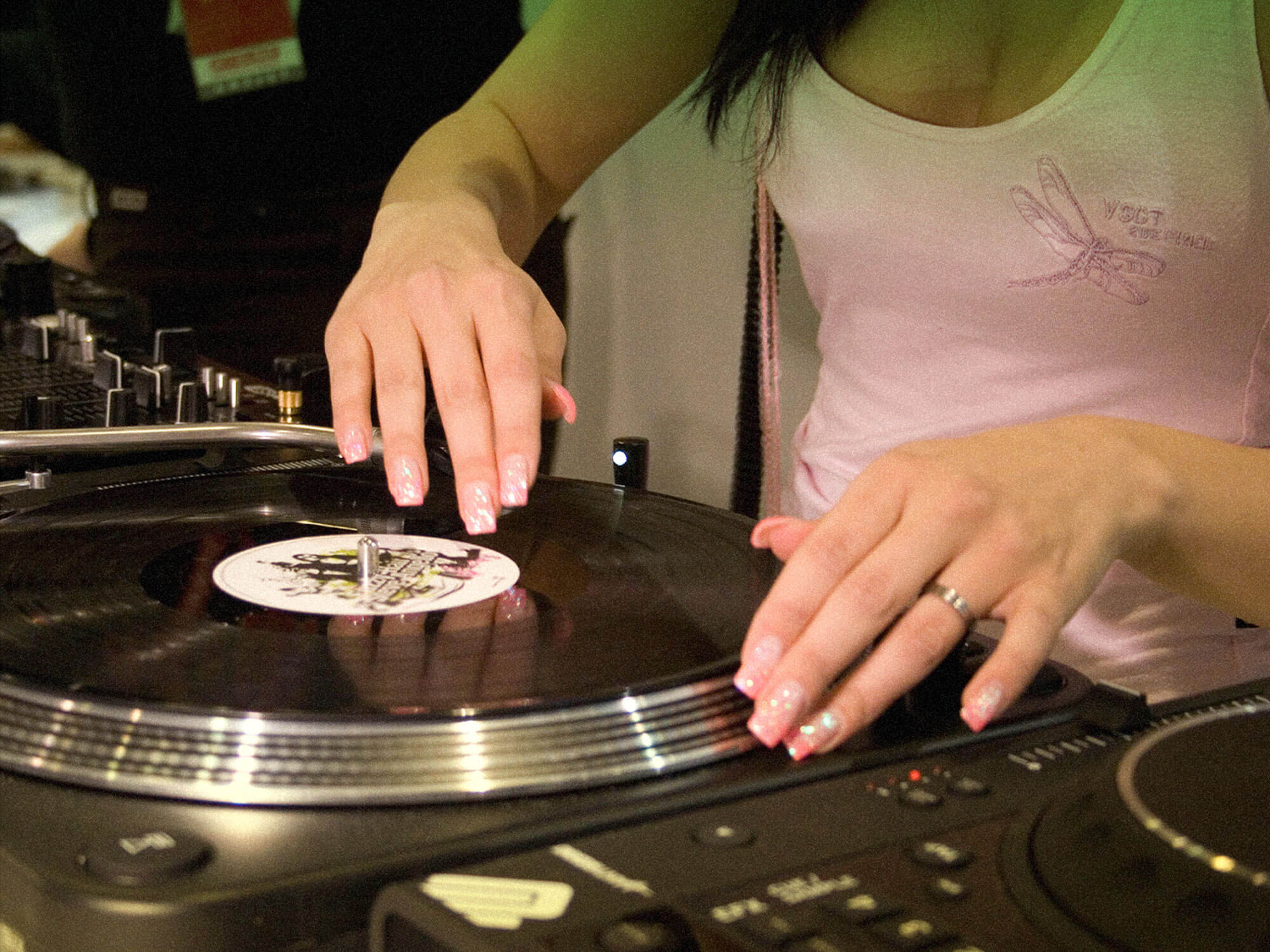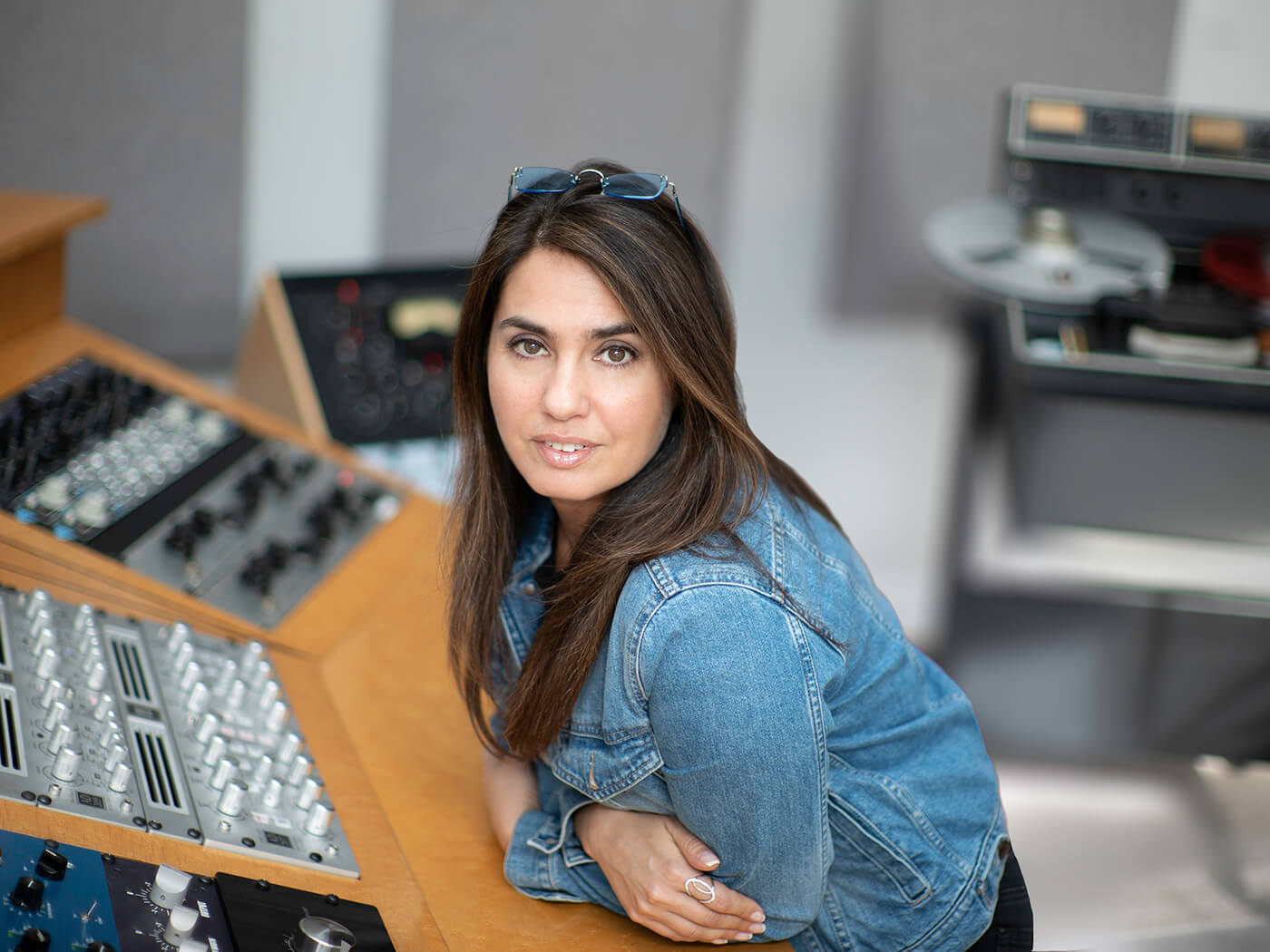
“Don’t Give Up On Diversity, Equity and Inclusion”. That’s the proud and defiant message Spotify posted on its HR blog in 2023. Two years later, the term ‘DEI’ has soured. Spooked by the Trump administration’s ‘war on wokeness’, many leading companies are deleting policies aimed at creating a fairer workplace.
So, should we in the music industry be worried about similar rollbacks?
“I think the entire world is worried about what’s going on,” says Emily Lazar, “What’s happening with DEI right now is going to impact all of us. It already has.”
Lazar is a Grammy Award-winning mastering engineer and no stranger to the fight for equity in the music industry. In her career, spanning over three decades, she says she’s seen “change and contraction, expansion and change again.” More than once, she’s been a key figure in delivering that change herself.
Her first Grammy Award nomination as a mastering engineer was for the Foo Fighters’ album Wasting Light. Incredibly, this made her the first ever woman to be nominated in the category. “How is this possible?” she recalls. “That was in 2011. It was kind of horrifying.”

Recognising the need for advocacy, Lazar founded We Are Moving The Needle in 2021, a non-profit that “empowers women, non-binary, and trans tech creators to succeed at the highest levels.”
In the past few years, the movement has driven diversity, equity, and inclusion policies, which has resulted in high-profile public campaigns from some of the biggest companies in the music tech space. The Beatport Diversity and Parity Fund was established to focus on “underrepresented groups and promote diversity in the music industry”, and AlphaTheta (formerly Pioneer DJ) launched its Start From Scratch initiative to “provide free access to the DJ industry for underrepresented communities”.
“Even just 10 years ago, talking about gender inequality in music would elicit a yawn from most people in the industry,” explains Isobel Anderson, a UK-based artist, producer, and founder of the podcast Girls Twiddling Knobs. “It was seen as a non-issue at best, if not needlessly complicated and boring. That’s changed.”

For Anderson, the benefits to everyone involved are clear. “With increased DEI comes increased prosperity for all, including financially, regardless of gender or other characteristics,” she says. “Industries that lack diversity and inclusion often have lower wages and opportunities for almost all, except those in high positions of power.”
When asked if she is worried about the DEI pushback, her answer is definitive. “Absolutely. And not just because it will negatively impact women, gender diverse people and other minorities, but because it’s not based on any logic or reason. It’s entirely ideological, with no evidence to back it up.”
The evidence we do have tells us that in music production, women and women of colour barely enter the equation. The USC Annenberg Inclusion Initiative, which analysed 900 songs from the Billboard Hot 100 End of Year Charts, puts the figure in the single digits. Just 5.9 per cent of producing credits in 2024 went to women. That’s just 14 women, only two of whom were women of colour.
Companies removing DEI language is a mistake. It will have an impact on the diversity of not only an individual company’s workforce, but the culture of music overall.
Prior to 2019, no woman had ever been nominated for an album at the Grammys in the Electronic/Dance category, until TOKiMONSTA was up for an award, to which she also made history by being the first Asian-American to do so.

Since the first Annenberg Report was published in 2017, the numbers starkly outline just how much work lies ahead. Recognising that progress on this issue has been painfully slow, both Lazar and Anderson believe now is simply not the time to give up on creating a more inclusive and diverse music industry.
No matter what they say in public, businesses seem to understand just how much support there is for DEI in general. Speaking anonymously to the Financial Times, one music executive explained that while it’s a “commercial imperative” to continue their company’s DEI efforts, they simply wouldn’t call it ‘DEI’ anymore. In the current political climate, the word has become all but toxic, and simply mentioning it can place a target on a business’s back.
This raises a thorny issue about how much language matters.
“Companies removing DEI language is a mistake,” says Anderson. “It will have an impact on the diversity of not only an individual company’s workforce, but the culture of music overall.
“When women or people from other minorities in music see a job or opportunity that specifically indicates an intentional commitment to diversity, equity and inclusion,” Anderson continues, “it makes them more likely to apply and take part. Not because they think they’ll have a better chance at being selected, but because they trust that if they were to be, they would be joining an inclusive and welcoming culture where they can thrive and contribute.”
Skye Landgraf, director of partnerships and programs at We Are Moving The Needle, understands the corporate and organisational perspective on the issue. “Scrubbing DEI language and changing how we talk about this work means that we’re losing an important element of accountability. If you don’t tell me what your commitments are, how do I know what your commitments are?”
“This is not the time to shut down a diversity of voices” — Alicia Keys
At the same time, the way people feel about DEI terminology, even those who benefit from it, is complicated. These words can feel like an empty promise or even a scarlet letter. It’s not uncommon to hear stories about being the ‘DEI hire’, that awkward and uncomfortable feeling of only being picked for a role to fill a quota based on ethnicity, gender or other minority characteristics. Lazar, who is a proponent of DEI, makes a point not to dwell on the terminology. “I am very clear that it’s not really about the language. It’s really about the actions.”
When it comes to Spotify, the largest music streaming platform on the planet, it’s fair to wonder where they stand on these issues. On the one hand, its Equity Impact Report states that “inclusion shapes everything we do at Spotify”, and the company consistently funds scholarships for underrepresented groups and sponsors initiatives like the USC Annenberg Report on inclusion in the recording studio.
Yet, at the beginning of 2025, Spotify donated $150,000 USD to President Donald Trump’s inauguration committee ceremony, raising the question of whether this is ‘business as usual’ or a signal that it might change its policies to placate a US administration which has threatened investigations and punishment for private companies who keep ‘illegal’ DEI policies on the books. Amazon, for example, donated $1 million to the inauguration and then promptly rolled back its DEI policies; however, Apple donated the same amount but ultimately voted against an anti-DEI proposal. The picture is not clear-cut.
Asked for comment, a Spotify representative told me: “We serve 678 million users in 180+ markets, so our workforce is inherently global to ensure we have the best people to support the artists, creators, authors and audiences in the local communities we serve.” It is worth noting that Spotify currently supports a number of initiatives, including GLOW With Pride: Amplifying LGBTQIA+ Voices and the Heart & Soul Initiative, which aims to bring mental health support to artists and creators.
Outside of the corporate context, it’s important to remember that artists, producers, DJs, and audio professionals can and do apply their own pressure on this issue.
“This is not the time to shut down a diversity of voices”, said Alicia Keys as she accepted the Dr Dre Global Impact Award at this year’s Grammys. A key advocate for more women in the music industry, Keys spelled it out for everyone in the audience: “We’ve seen on this stage talented, hard-working people from different backgrounds, with different points of view, and it changes the game. DEI is not a threat, it’s a gift — and the more voices, the more powerful the sound.”
At the ground level, Lazar is witnessing a lot of positive steps being taken: “We’re seeing people assemble teams of 50 per cent women. We’re seeing touring artists who are intentionally hiring women for their tours and trying to fill the backline of their tours with women. We’re seeing artists who are making an effort to hire women producers and engineers, extending beyond that to look at all of the roles to go into filling out a team from management, to PR, to label services.”
In the past, these decisions were the domain of labels, but with an increasing number of music makers “steering their own ship”, as Lazar says, “Artists are now learning that they have more power.”
Even as DEI undergoes a surface-level rebranding in many corporate circles, public support for DEI is helping to shape actual policy choices. As a result, some businesses are choosing to embed diversity, equity and inclusion into the culture, rather than do away with it entirely.
Ultimately, despite witnessing yet another backslide in culture, Lazar holds a positive view of the music industry and how it might respond. “What matters is how we react and what we do as an industry to stand up for ourselves and our own,” she says. “That’s going to really tell the rest of this story.”
Lazar points to the LA wildfires at the start of 2025 as an example of people in the music industry coming together to support each other during one of the most devastating moments in LA’s music history. Throughout these cycles of change, she says that one thing remains constant: “We are an industry that supports our own.”
The post What does the DEI rollback mean for the music technology industry? appeared first on MusicTech.





Recommended Comments
Join the conversation
You can post now and register later. If you have an account, sign in now to post with your account.